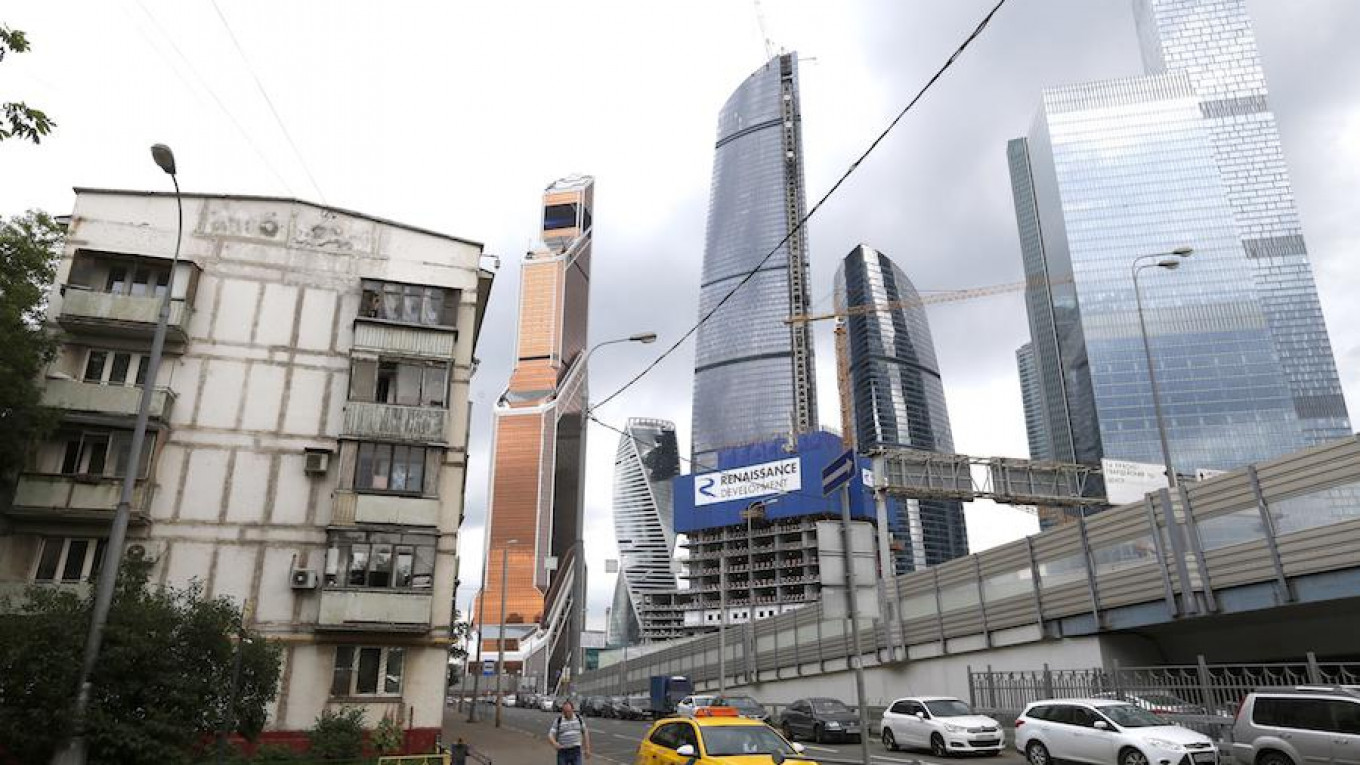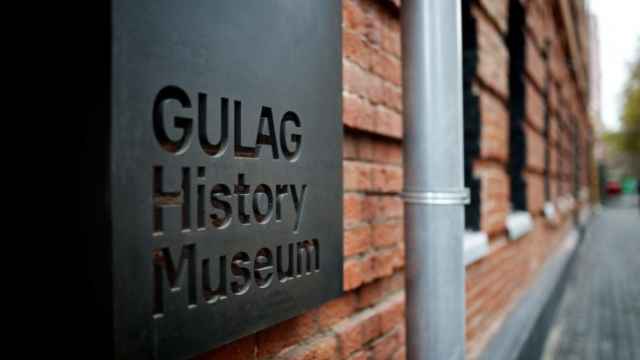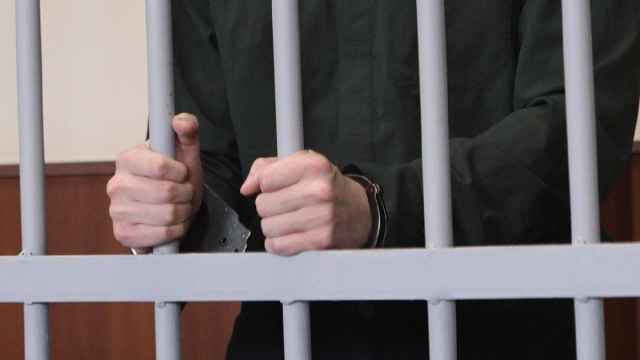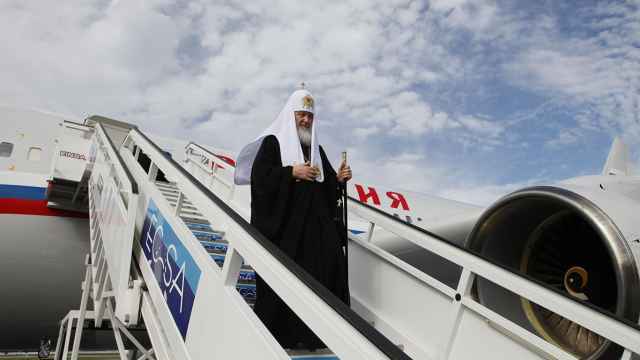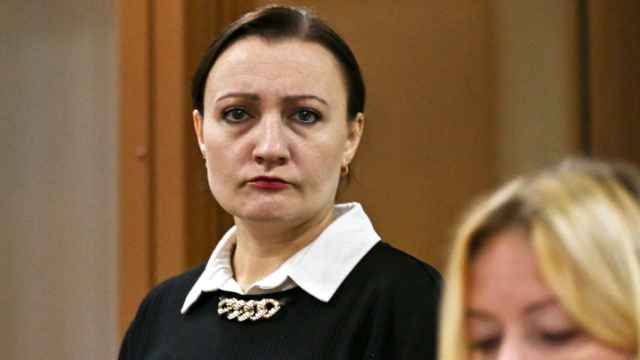“We are not against beauty, we are against superfluity,” Nikita Khrushchev told Soviet architects in 1954.
Speaking a year after Stalin's death, with the Soviet Union damaged by war and repression, Khrushchev ordered a nationwide effort to build housing cheaply and quickly. This, the most ambitious Soviet housing project, gave birth to the Khrushchevka — the distinctive five-story building named after the Soviet leader. Millions of Russians continue to live in them today.
Sixty years on, however, Moscow authorities have decided they have had enough of the Khrushchevka. In a meeting with President Vladimir Putin on March 1, Moscow Mayor Sergei Sobyanin announced plans to demolish around eight thousand of the post-war buildings.
This equates to 25 million square meters of living space and will involve re-housing 1.6 million people – the population of a small European capital.
The decision took Muscovites by surprise. After all, the plans to demolish a large part of the city had not been discussed in any public sphere, let alone parliament.
“They decided everything for us, once again,” prominent architect Yevgeny Asse told The Moscow Times, adding he first heard about the plans on television.
Socialism With a Human Face
Since its announcement, Sobyanin's plan has sparked panic and excitement in the city. It has also uncovered Russia's love-hate relationship with the tiny Soviet-era apartments.
“Obviously, these buildings are not pieces of art,” says Asse. But on the other hand, he says, they solved a housing crisis and improved living standards for many: “It was Khrushchev's most positive legacy.”
The Khrushchevka represented a time of political thaw after the dark days of Stalinism. “It was the first time ordinary citizens participated in the planning and construction of their housing,” says Konstantin Mikhailov, one of Russia's leading conservationists.
Few could argue with city authorities that many Khrushchevkas are in a dire state. They were built quickly and cheaply at a time of great housing need. Some were not expected to last longer than 25 years.
But the condition of the buildings varies greatly. The majority were built with reinforced concrete and prefab panels, but others were built with sturdier materials, like brick. Some were renovated in the 1980s during a large reconstruction project.
The Krushchevkas don’t necessarily make for terrible homes. Over 60 years, trees have grown tall around the buildings, making them some of the greenest places in the city. Nursery schools and clinics were purposefully built nearby. They are known for their box-sized rooms and lack of lifts but, as Asse says, many apartments in the newly built blocks in Moscow's suburbs are even smaller.
“[The demolitions are] not in the interest of the people, but in the interest of property developers,” says Asse.
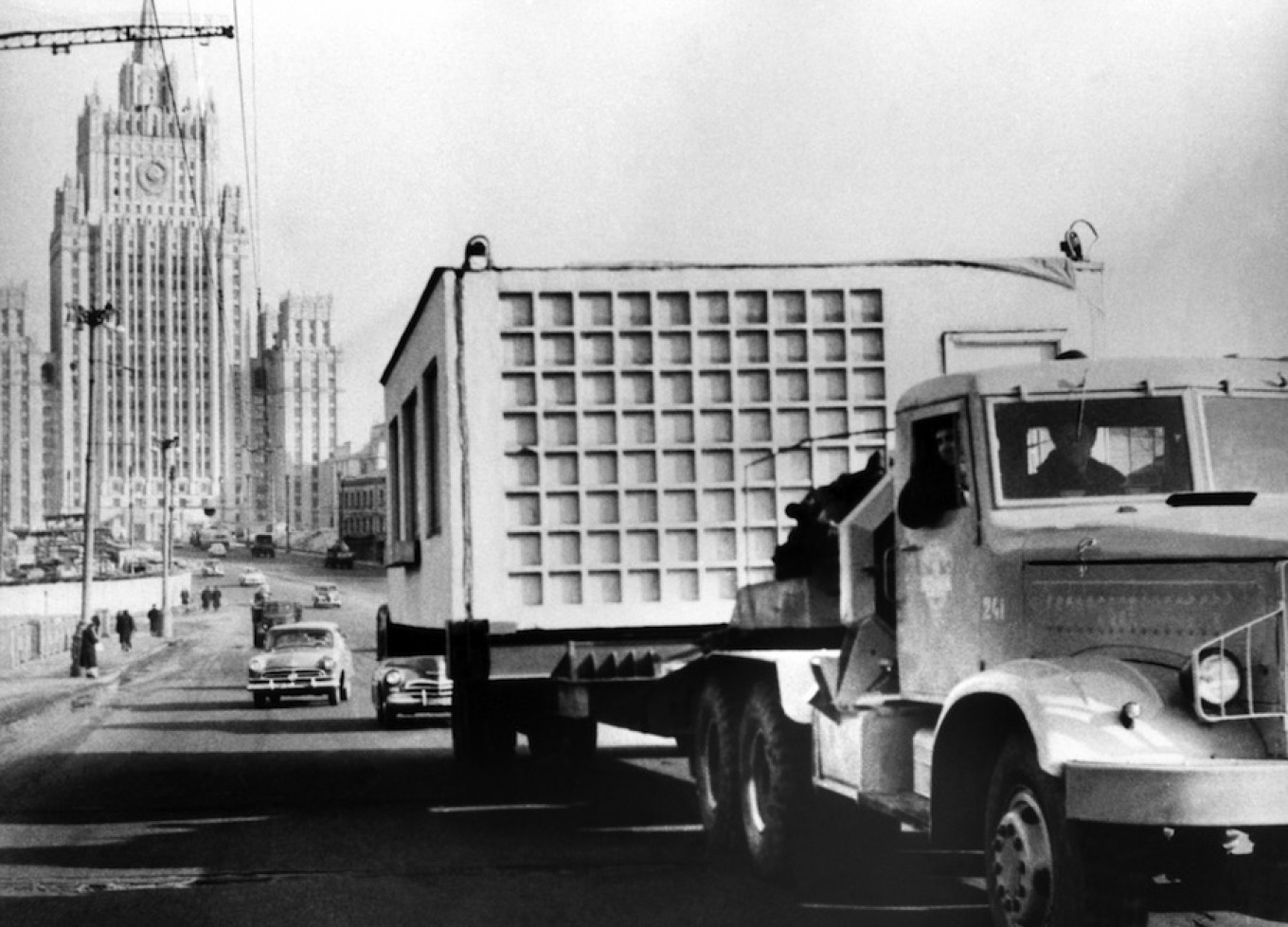
A Political and Economic Campaign
Moscow has gone through waves of demolishing Soviet-era housing blocks in the past, but the scale of this plan is unprecedented. Many see the grand project as a plan of political ambition from the Mayor’s Office — a desire to a achieve once-in-a-lifetime urban transformation.
A source close to the mayor told the Vedomosti newspaper that Sobyanin wants to “leave his mark” on the city. He reportedly sees this programme as a “historic mission.”
Political analyst Ekaterina Schulmann believes it is no coincidence Sobyanin has announced these plans ahead of the 2018 presidential and Moscow mayoral election. “Ten percent of the Russian electorate lives in Moscow. They want the city to shine,” she says.
But Sobyanin’s grand plans are not just a political vanity project. At a time of an ongoing economic crisis, the long-term program is meant to create jobs and bolster Russia’s construction industry and stagnating housing market.
Moscow estate agents and property developers are already eyeing the land that will be cleared, hoping to take part in the later stages of the programme. The apartment buildings in the centre of Moscow — those nearest to the metro stations — are expected to be demolished first. This will put some of the Russian capital's most valuable land up for grabs.
Most doubt the city will be able to find the cash to finance the entire project, and that it will be scaled back in some way. According to Vedomosti, the overall cost of the project may even break 3 trillion rubles (US$51 billion).
Yelena Kochanova, director of GK Insigma property development, says investors are waiting for the official demolition list, due to be published by September. She says they expect the process to be long, particularly since Sobyanin announced there will be changes in federal planning law ahead of the programme.
Next Stop Evictions
The ambiguity of the plans so far, the lack of official demolition list, and last minute changes to the law has Khrushchevka owners and residents worried.
Currently, Russian law prohibits authorities from forcefully evicting people from their homes unless a building is considered too dangerous to live in. In all other circumstances, property owners have the right to decide the fate of the building. Additionally, if authorities do evict residents they are obliged to rehouse them in the same district of the city.
But Sobyanin's plans to abruptly change legislation has provoked fears that residents may be forcefully evicted and possibly moved further out into the Moscow suburbs.
“There is no programme, there are only rumours and statements,” says Yelena Rusakova, a an opposition politician in Moscow. She is urging property owners in her district to register the land below their building as their property. They are entitled to under law, but the dense bureaucracy of the process means most owners haven’t. Rusakova says this would give owners a legal advantage when facing a developer, who would need to buy the land from them.
Rusakova says authorities have already set a precedent in which property rights do not matter. Ahead of the Sochi Olympics and the 2018 World Cup, authorities across Russia violated property laws to evict residents from housing to make way for stadiums and other facilities.
Activists and deputies are encouraging residents to organize themselves. Most buildings do not have organized housing associations and residents do not participate in the decision making of the property they own.
No one knows what will replace the Khrushchevka. But critics like Rusakova suggest the upcoming urban revolution in Moscow will follow the same “characteristically undemocratic” patterns Sobyanin has previously demonstrated.
The views of residents, she fears, will not matter: “The people who devised this programme see the city as their own property with which they can do as they please.”
A Message from The Moscow Times:
Dear readers,
We are facing unprecedented challenges. Russia's Prosecutor General's Office has designated The Moscow Times as an "undesirable" organization, criminalizing our work and putting our staff at risk of prosecution. This follows our earlier unjust labeling as a "foreign agent."
These actions are direct attempts to silence independent journalism in Russia. The authorities claim our work "discredits the decisions of the Russian leadership." We see things differently: we strive to provide accurate, unbiased reporting on Russia.
We, the journalists of The Moscow Times, refuse to be silenced. But to continue our work, we need your help.
Your support, no matter how small, makes a world of difference. If you can, please support us monthly starting from just $2. It's quick to set up, and every contribution makes a significant impact.
By supporting The Moscow Times, you're defending open, independent journalism in the face of repression. Thank you for standing with us.
Remind me later.


